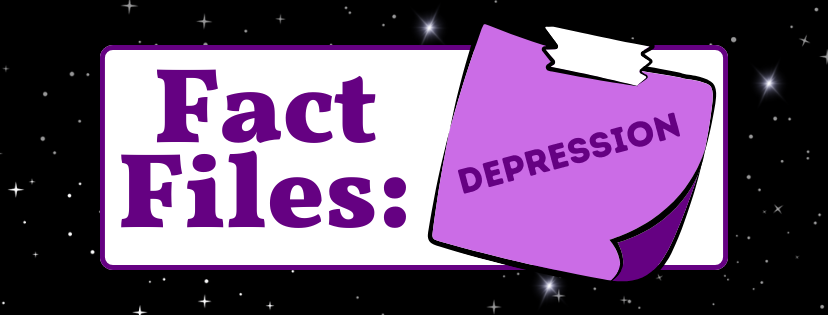Depression is more than simply feeling a little sad. We all go through periods of feeling down from time to time, this is perfectly natural, however, it these feelings persist for weeks or longer, then it may be worth speaking with a GP.
Depression is one of the most prevalent mental health conditions, affecting 1 in 6 adults in the UK.
While there is no definitive cause of depression, there are some risk factors when it comes to its development. While the following is not a complete list of potential triggers/causes, these are some of the most common that have been sighted via research studies:
- Childhood trauma
- Stressful life events (these can be positive or negative; such as having a baby or losing a loved one)
- Other mental health conditions (Anxiety, PTSD, Schizophrenia)
- Physical health concerns
- Family history
- Medications
- Recreation drug and alcohol use
- Sleep, diet and exercise
While depression can affect anyone of any age and from any background, it has been found that women are twice as likely as men to experience the condition.
Symptoms:
The symptoms of depression will vary for each individual and can range in severity.
- Feeling down, upset and tearful
- Being restless and easily agitated
- Feeling guilty
- Feeling empty and numb
- Feeling lonely and isolated
- No longer feeling pleasure in the things that you once enjoyed
- Being easily angered and frustrated
- Having little to no confidence or self-esteem
- Feeling tired all of the time, no matter how much sleep you get
As a result of these symptoms, the individual may also start to act differently.
- Avoiding social activities
- Self-harm / Suicidal behaviours
- Using substances or alcohol as a coping mechanism
- Losing appetite or eating more than usual
- Experiencing physical aches and pains
Many people with depression will also experience symptoms of Anxiety.
Treatments:
A treatment plan will be tailored to the individual depending on their symptoms and their personal circumstances.
The main treatments that are available for depression include talking therapies and medication.
There are different types of therapy that may be considered.
– Family therapy; where the individuals parents/caregivers and/or siblings can be present. This may be offered if the individual is young, or if there are a lot of family issues/concerns that need addressing and working through. Sometimes this will be paired with individual therapy sessions so that the individual can also have some privacy to discuss things that they are not yet ready to discuss in front of others.
– Group therapy; where the individual attends anonymous group sessions with others who are going through depression and/or other mental health concerns.
– Cognitive Behavioural Therapy; also known as CBT. This is a talking therapy that is designed to help the individual to develop better, safer, coping mechanisms. These sessions will focus on their thoughts, behaviours and attitudes and look at altering them slowly over time.
15% of women with depression seek treatment, compared to just 9% of men.
Other types of depression:
- Postnatal Depression
- Bipolar Disorder
- Seasonal Affective Disorder
Across the UK, rates of depression are still much higher than they were prior to the coronavirus pandemic. Around 17% of adults experienced some form of depression in the summer of 2021, compared to 10% before the pandemic.
If you think that you might be suffering from depression, please speak to your GP and get the help that you deserve. You can also contact The Samaritans on 116123 or call NHS 111, who will be able to direct you to services that best suit your needs.
*Updated: November 2024*
Champion Health – Statistics of Depression in the UK (2023)
National Institute of Mental Health – What is Depression?
World Health Organisation – Depression / Depressive Disorder


